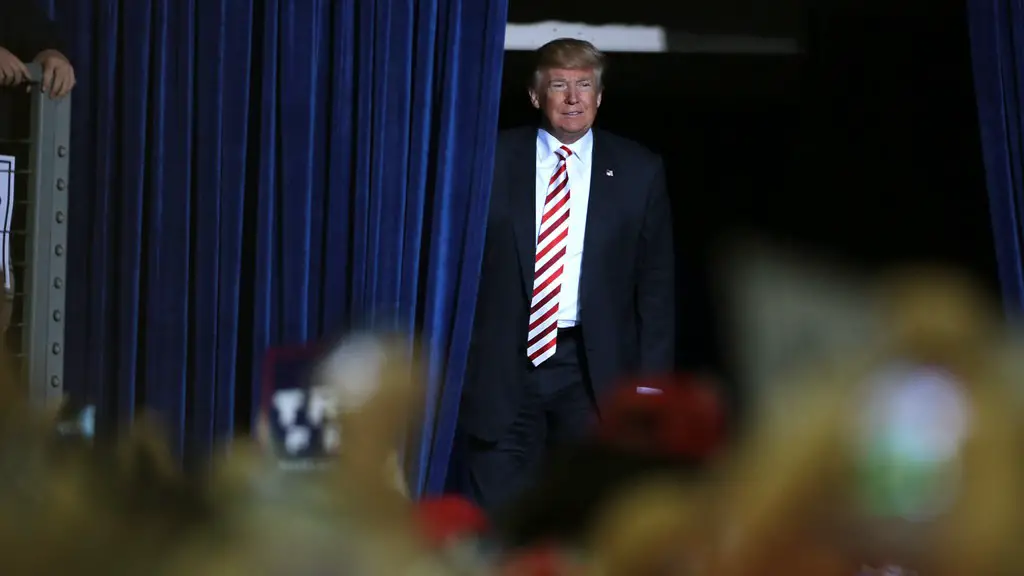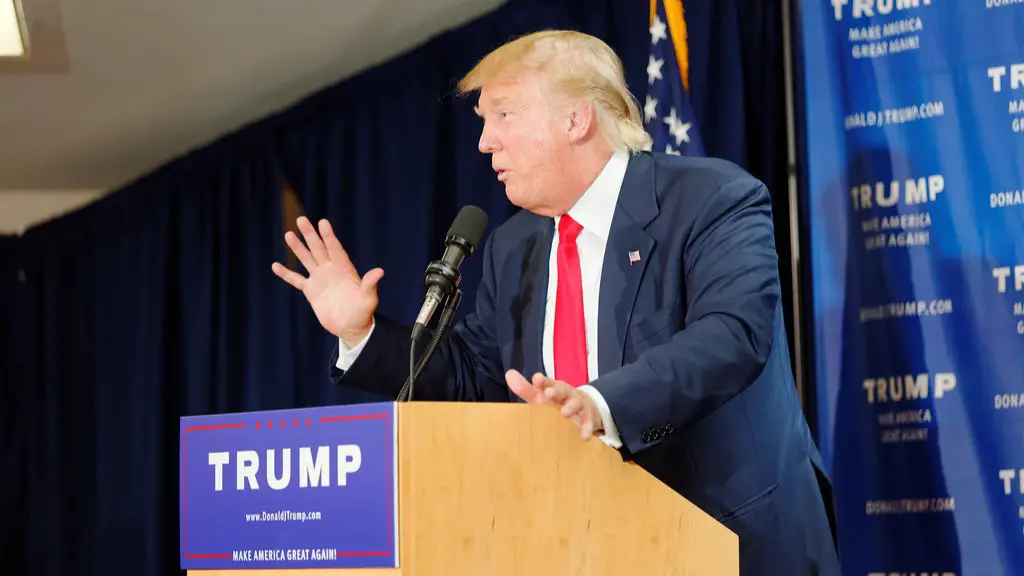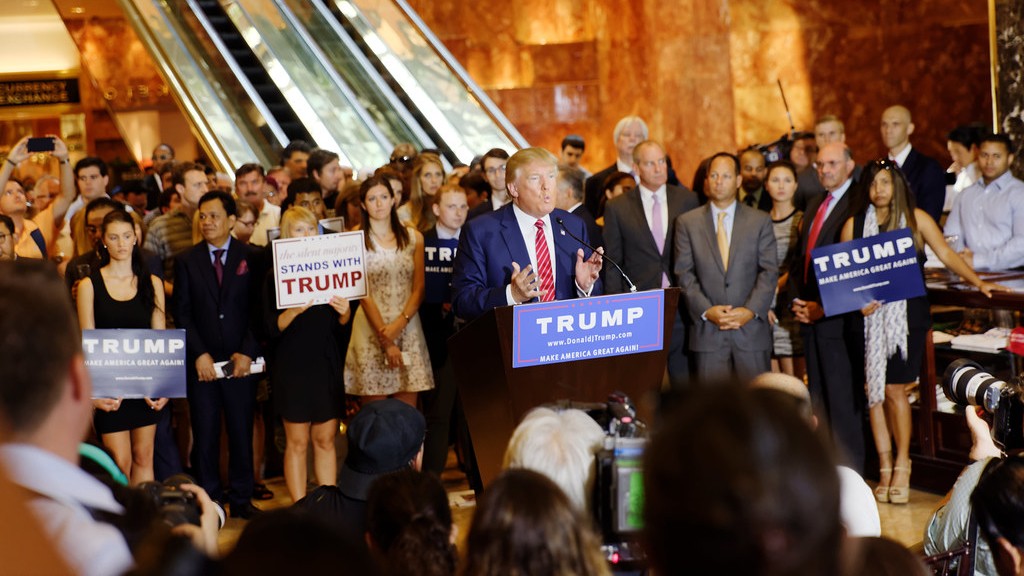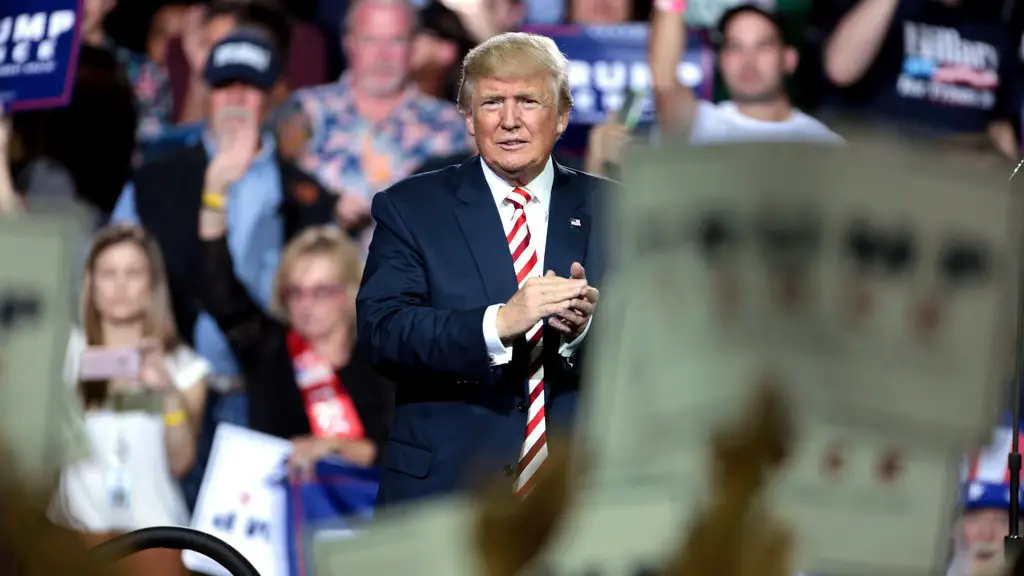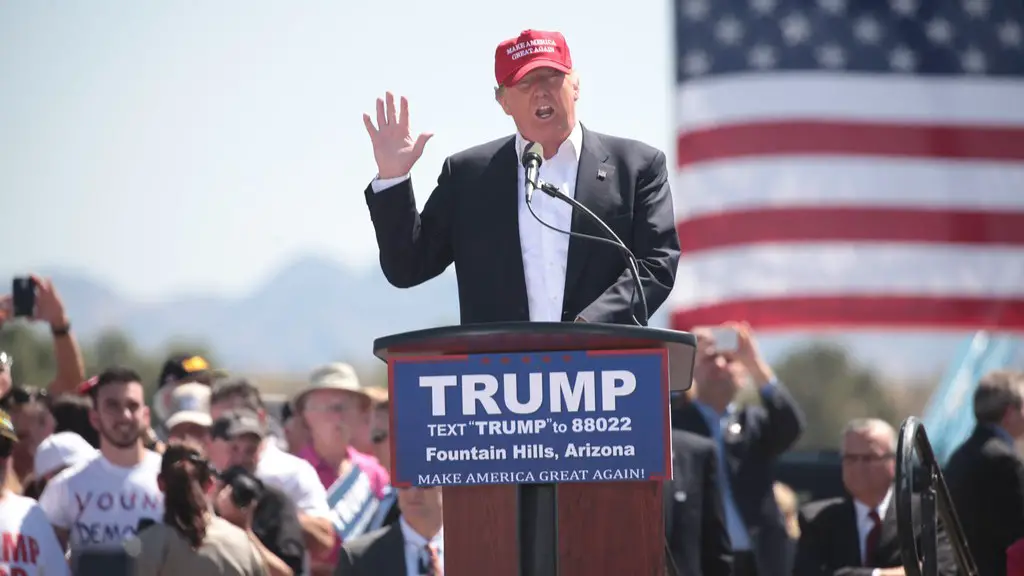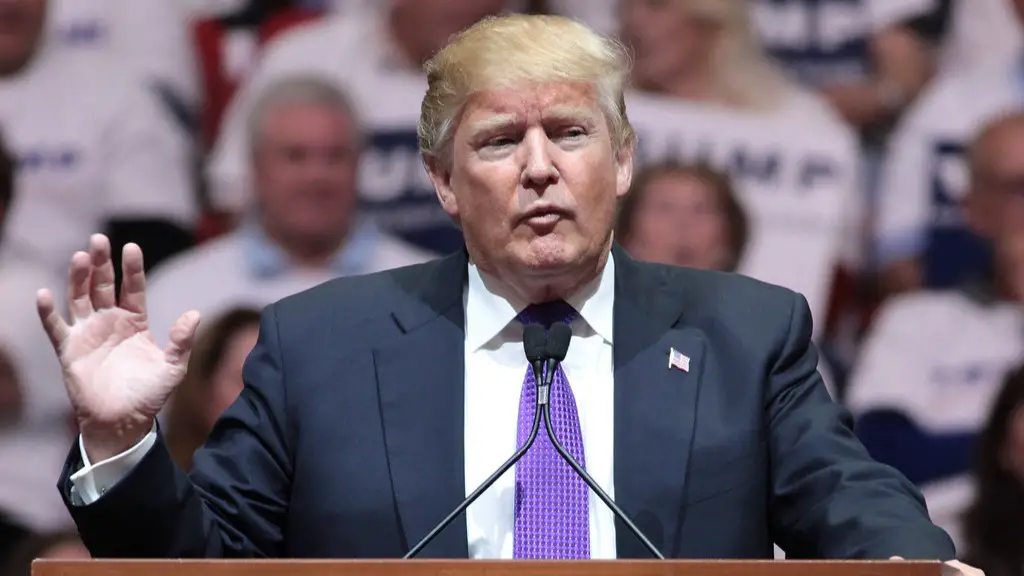Donald Trump has been elected the 45th president of the United States. During his campaign, Trump promised to bring jobs back to America and revive the economy. It remains to be seen if he can deliver on these promises, but many Americans are hopeful that Trump will be able to help the economy. Only time will tell if Trump will be successful in revitalizing the economy, but there is reason to be optimistic.
Donald Trump has been credited with helping the economy by increasing jobs and lowering the unemployment rate. He has also been praised for cutting taxes, reducing regulations, and stimulating economic growth. Trump’s policies have been controversial, and some economists argue that his actions have actually hurt the economy.
Is the US economy getting better?
The economy grew at an unprecedented rate in 2021, but slowed down significantly in the following year. This discrepancy can be attributed to a number of factors, including the global pandemic and the resulting economic downturn. Nevertheless, the economy is still growing, albeit at a slower pace.
Since President Biden took office, the economy has added more than 12 million jobs—including more than 800,000 manufacturing jobs—and the unemployment rate is at a 54-year low, including near record lows for Black workers. The unemployment rate for Hispanic workers hit a record low last year. These are just a few of the many accomplishments of the Biden Administration in its first 100 days.
When was the US economy at its peak
The Great Recession was a global economic downturn that lasted from 2007 to 2009. It was the worst economic crisis since the Great Depression of the 1930s. The United States was the hardest hit, with unemployment reaching a peak of 10 percent in October 2009. However, the U.S. economy has since recovered. Real GDP regained its pre-crisis peak in 2011, and the unemployment rate fell to 4.7 percent by September 2015.
The Treasury Department is responsible for a wide range of activities including advising the President on economic and financial issues, managing the government’s finances, issuing debt and overseeing the printing of currency. The department also has a critical role in combating terrorist financing and money laundering.
Will US face economic crisis?
The Conference Board’s leading index is a key indicator of economic activity, and the recent drop of 10% is a cause for concern. This suggests that the economy could be heading for a recession in the latter half of 2022. This is a troubling development and businesses and consumers should be cautious in the months ahead.
Many economists agree that, although the US economy is currently growing, it is not yet out of the recession. The most recent gross domestic product report published last week showed the US economy grew by 29% in the fourth quarter of 2022, following growth of 32% in the quarter before. However, many economists believe that the US economy will need to grow at a faster rate in order to truly recover from the recession.
Will the US economy recover?
The economy is expected to contract in the fourth quarter of 2022 and into 2023, with a muted recovery in 2024. This forecast is based on the assumption that the pandemic will continue to weigh on economic activity in the near term, especially as infections rise and states reimpose restrictions. The vaccine rollout is also expected to be slow, weighing on the recovery in the first half of 2024. However, as the pandemic subsides and the vaccine is more widely available, the economy is expected to rebound in the second half of the year.
Risks to this forecast include the possibility of a more prolonged and severe recession, as well as a more rapid and widespread vaccine rollout.
The labor market is cooling down, which is good news for workers as it puts less pressure on wages. Unfortunately, this also means that the economy is slowing down, which could lead to a recession in 2023. Housing prices and new construction have both declined, which is another sign that the economy is slowing down. This is a worry for everyone, as a recession can lead to job losses and financial difficulties.
Whats next for the US economy
There is a 35 percent chance of a US downturn in 2023, bank economists say. A mild recession is likely beginning in the first half of the year, the bank says in a recent report. However, they still hold out the possibility that no recession will occur.
During the Great Depression, the world economy declined sharply. Businesses closed, unemployment rose, and poverty increased. The Great Depression began in the United States but quickly spread to other countries. At its peak in 1933, one out of every three workers in the United States was unemployed.
The Great Depression had a profound impact on the world economy and it is still felt today. It taught us the importance of economic stability and the need for government intervention in the economy. The policies that were put in place during the New Deal helped to end the Great Depression and set the stage for America’s economic dominance in the 20th century.
How long will the recession last?
There have been many recessions throughout history, and they have varied in length. The average recession, according to data from the National Bureau of Economic Research, lasts 17 months. However, recessions can last from a few weeks to several years, depending on the cause and government response. Some of the longest recessions in history include the Great Depression, which lasted from 1929 to 1933, and the Japanese recession of the 1990s, which lasted from 1991 to 2002.
The USA has the world’s largest economy with a GDP of 2332 trillion dollars. It is followed by China in second place with a GDP of 1773 trillion dollars. Canada is also quite far ahead in the international comparison and occupies the ninth place in this ranking.
What is causing inflation
Inflation is primarily caused by an imbalance between demand and supply. When there is too much demand relative to available supply, prices rise. The reverse is true when supply exceeds demand.
Inflation is expected to remain high in 2022 due to higher energy costs. The Fed has increased interest rates three times in an effort to control inflation, but it has not been successful in curbing rising prices. Wages and spending growth have also been outpaced by inflation, leaving consumers with less purchasing power.
What should the president do to improve the economy 2022?
The next president can boost the economy in a number of ways:
1. Create jobs, especially for the middle class and those who are struggling.
2. Address our crumbling infrastructure.
3. Improve access to health care.
4. Increase productivity.
5. Create an Office of Opportunity.
6. Pursue policies that encourage growth and innovation.
7. Invest in education and training.
8. Support small businesses.
9. Promote clean energy and environmental protection.
10. Stimulate demand through tax cuts and other measures.
11. Work to reduce the trade deficit.
Roubini is bearish on the economy and believes that a recession is looming. He cites a number of factors, including the trade war, high levels of debt, and slowing economic growth. While his timeline is uncertain, he believes that the recession could last for the entirety of 2023. This would be a severe and long-lasting recession, with potentially devastating consequences.
Will US economy crash in 2022
Nomura Holdings Inc., a Japanese financial holding company, is a leading global financial institution. They have released a report stating that the United States economy will most likely fall into a mild recession by the end of 2022. The reasoning behind this claim is that the Federal Reserve will need to raise interest rates in order to keep inflation under control, and this will in turn slow down economic growth.
While it’s always difficult to make predictions about the future, the report from Nomura Holdings Inc. is based on sound economic reasoning. If the Fed does indeed raised rates as they expect, it’s likely that this will lead to a slowdown in economic activity and eventually a recession. However, it’s important to remember that this is just one possible scenario and that the future is always uncertain. Only time will tell what the true outcome will be.
As per The Conference Board’s prediction, the US is expected to avoid a contraction in GDP altogether. However, some economists project that the US might experience a slight contraction in GDP.
Final Words
Most economists agree that Donald Trump’s policies would likely hurt the U.S. economy in the long run. While he has promised to increase economic growth through tax cuts and deregulation, experts believe that his trade and immigration policies would actually do more harm than good. In addition, his proposed budget cuts to important programs like education and infrastructure would also hurt the economy in the long run.
As the current President of the United States, Donald Trump has the potential to help improve the economy. Trump is a successful businessman and has been able to negotiate good deals for the American people. He has also lowered taxes and created jobs. If Trump can continue to make good decisions for the country, the economy will improve.
